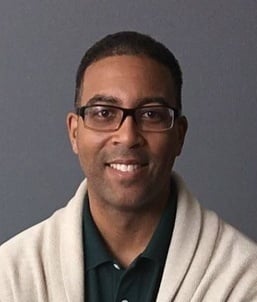Transformative Leadership (TEL - Cohort)
Learning Objectives
- Learn the principles and practices of transformative leadership through the lens of some of history's most profound change makers.
- Learn the common virtues and qualities of spiritually rooted leaders that drive them to and through historical social change.
- Begin to develop your personal philosophy of leadership that promotes social change.
Course Components
Syllabus
-
Syllabus
10 MinutesLesson Locked
Transformative Leadership
-
Introduction
 10 MinutesAssignmentLesson Locked
10 MinutesAssignmentLesson Locked -
Fannie Lou Hamer
 9 MinutesAssignmentLesson Locked
9 MinutesAssignmentLesson Locked -
Howard Thurman
 9 MinutesAssignmentLesson Locked
9 MinutesAssignmentLesson Locked -
Thomas Merton
 8 MinutesAssignmentLesson Locked
8 MinutesAssignmentLesson Locked -
CRC Renewal Project Visible Outcomes
10 MinutesAssignmentLesson Locked

Transformative Leadership (TEL - Cohort)
Taught by Dr. Leonard McMahon
This course is one part of nine in the Theological Education for Leadership (TEL) Learning Path offered by PSR. It is one quarter of the full-term course of the same name and is considered the introductory overview of Transformative Leadership. You will explore key components of leadership, including spirituality, integrity, trust, emotional intelligence, power, humility and responsibility through examination of historical transformative leaders in social justice: Fannie Lou Hamer, Howard Thurman and Thomas Merton. Secondarily, film plays an integral role in this course through both content and assessment. You are encouraged to use the elements of this course to springboard the development of your leadership acumen and drive transformative movement in your life and in this world. Cohort will be starting April 2026.
This course is part of the PSR - Congregational Renewal Cohort Program.

Meet Your Instructor,
Dr. Leonard McMahon
Dr. Leonard McMahon has a Doctorate in Theology at the Graduate Theological Union at UC Berkeley, working in spirituality, theology, and political theory. Leonard holds an MA in Religious Studies from UC Santa Barbara and an MDiv from Harvard Divinity School.
With his interest in improving the common good through political theology, spirituality, and pastoral care, Leonard works through his consultancy, Common Ground Dialogue, to bring divergent citizens into deeper conversation for the sake of our democracy. He is deeply concerned about political polarization and draws upon classical spirituality and modern political theory to craft a pastoral approach that attends to both the macrosocial and microsocial aspects of our common life.
Seminary students are entering a world where the increasing media presence of marginalized communities has resulted in a cultural clash between margin and center and the intense political struggle over the direction of our society and the world. In such a world, spirituality and pastoral care are integral to forming leaders who can prioritize the margins while keeping track of those at the center. Leonard agrees with Pacific School of Religion that the future belongs to marginalized communities; he sought a faculty position here because his progressive Christian faith demands he play a role in its mission to create a world where all can thrive.
A longtime member of Glide Memorial Church, Leonard has also ministered in the United Church of Christ and the Unitarian Universalist Church. In addition to his academic studies, he has worked on Capitol Hill and taught English and History in the Cheongdam-dong area of Seoul, South Korea. He is a big fan of the WNBA and enjoys seeing games live whenever possible.
